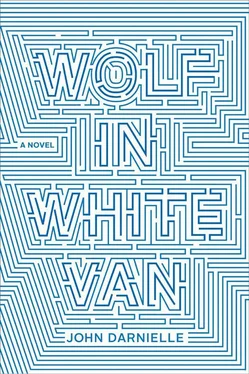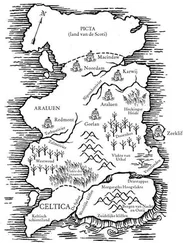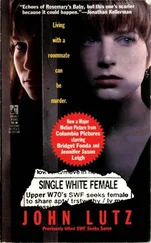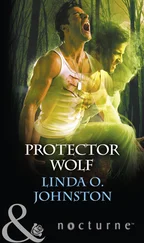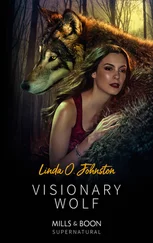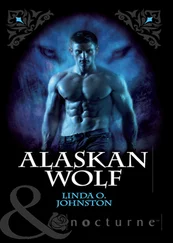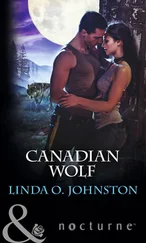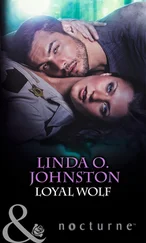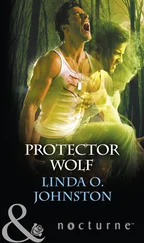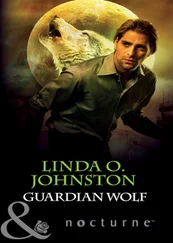I stood in the kitchen by the window reading the summons; it was so boring. The facts that had brought it into being were the stuff of nightmares, vivid and awful and real, but the thing that came to speak of them was a lifeless sequence of instructions written in a language no one alive even spoke. Nobody talks like that. People only talk like that when they can’t stand to tell you what they mean. I lead a sane and quiet life: the sun shone on the grape-candy purple jacaranda in the breezeway outside, and the oleander and the bottlebrush were in bloom down the walkway, and I felt like I had been suddenly shot out into space, the world I’d left behind terrible and frightening, only now I couldn’t breathe at all. I felt my blood quickly becoming starved of oxygen and my cells beginning to swell, and the stars around me grew brighter and then faded, and then nothing happened at all, and I stood by the window a while longer with the summons in my hand, wanting to run back to the front door to watch the process server get back into his car but knowing I’d missed him already, feeling the instinct to run to the door emerge anyway as a genuine urgency in my thin, underdeveloped legs.
The noise can’t really be blocked, just bested. Music therapists play you droning synthesizer music or classical when you’re in physical rehab; music therapists are the sweetest people; of all the people who try to help you in the hospital, they’re the ones whose faith in their power to heal seems strongest. But it takes high-pitched sounds with a thick texture and a persistent rhythm to really make the whoosh go away. Bamboo flutes can’t touch it. Neither did the stuff my friends and I had all been listening to together ever since we’d started hanging out, the blues-rock stadium stuff. And that was how I got into blindly ordering strange music through the mail: Spirit of Cimmeria always had one or two ads for music “inspired by the genius of Robert E. Howard,” for example — stuff made by guys living in distant backwaters with no hope of ever making their voices heard anywhere, writing songs about the books they spent all their free time reading just trying to escape, playacting in a vacuum. There were similar ads in comic books, in Omni. They were everywhere if you knew how to look, so I spent my allowance on this kind of thing. Mom still gave me an allowance, even after what I’d done.
The first tape I got was folk music from someplace in Massachusetts, and I hated it. The second, which I’d ordered on the same day as the first one but which took a week longer to arrive, was by a band called Sunlight, and it came from Texas. I remember being excited about that, because Robert E. Howard was from Texas: he blew his brains out in the driveway of his house in Cross Plains. He was thirty years old and his mother was in a coma. I memorized all these details when I was fourteen, running around everywhere devouring every piece of information about Conan I could find; it had a religious appeal for me.
Sunlight’s tape was called In Hyborian Sleep and by normal standards it sounded terrible: there were no bass frequencies, the singer just screamed, the drums were a constant artillery barrage the whole time. But it transported me. It freed me from the ringing in my ears and from the decision that sound was always pointing toward, from what the sound meant. From the second its staticky blasts started scratching through the speakers of my cheap Montgomery Ward stereo, I loved it, and I turned it up as loud as I could get it to go without distorting. I held my big head in the sweet spot between the speakers and closed my eyes to dream of barbarian conquest, and that’s how Mom found me when she came in.
I think I was half-conscious of her for a minute: something from outside the squall trying to draw me out. “Sean, please!” was the first thing I heard.
I turned the music down but not off. “Please what?” I said.
“Please tell me what it means that you’re listening to such …” I could see the tension in her neck, in her eyebrows. “Such racket.”
“What it means?” I said. It was still early in the whole process; I always felt humiliated if a situation called for an answer of more than a few words, and I could feel my anger building.
“Sean,” she said, “we …” and then she stopped herself again. Over the years I have tried to figure out what thoughts, what actual words, lay in the gaps between the things my mother starts to say and the things she ends up saying. “Whatever this is, it’s too much. You’re alone in your room all the time, and the music’s always on, and you’re still doing that Conan thing you did when you were just a—”
I saw my mother’s eyes fill halfway with tears. She held out her hand in an almost stage-like gesture, and swept it from left to right in an arc that drew in the stereo, the fanzines, the books and cassettes piled on top of the turntable’s dust cover, and the Michael Whelan posters on the walls that my dad had taken down while I’d been away, which I’d dug right back out and hung again as soon as I got home. And the sketches I’d made of the Plague Blaster gun: those were up now, too, taped to the walls in places of prominence. These were big improvements over the nylon lariats the Retrievers had used in earlier drafts of the Trace outline. They fit right in your hand. They were thumbtacked in clusters on the wall next to the bed, one on top of another: the guns, and the Retrievers, and the mutated horses they rode through Kansas on. The sketches and maps clustered out and overlapped with one another like flyers on telephone poles. Mom let her hand drop back to her side, and she said, “It’s just too much, honey,” and I couldn’t look her in the eye.
I wish now that I could have explained to her about the noise in my head and the music fixing it, but I couldn’t, because it all happened too quickly and my temper flared before I had a chance to think. I punched the POWER button on the stereo to shut the whole thing off at once and all the life went out of it, and the noise roared in my ears again, worse than ever. I sat on my bed and looked down at the floor, and my mother came and sat next to me and put her arm over my shoulder, buddy-style. I leaned into her, against her, feeling sorry now, regret rushing in to fill the spaces where the anger drained. “It’s OK, I’m sorry,” she said. In the corner of my eye I caught the Plague Blaster, its contours clean, its heft exactly right.
I stopped listening to tapes at some point: it was a phase. You either get used to noises in your head, or you learn to focus instead on whatever other noises happen to be present in the room, like the air conditioner. Still, I kept them, and they’re arranged neatly on top of the dresser in my bedroom, which means Vicky dusts them once a week. They look like museum pieces now. Chaos Blood, Black Lake, Rexecutioner’s Dream. Sean at sixteen thought Rexecutioner’s Dream was the greatest thing he’d ever heard, something so strange and different it seemed like a message from another realm. It had cover art, but the art was glued onto the inner sleeve of a standard-issue blank cassette; the spine was hand lettered. It was the product of someone’s hard work, a vision brought into the world of real things. A dream disguised in a crude, plain package.
When the hate mail started up I had an impulse of the sort I rarely get anymore, the kind the antidepressants I’m supposed to be taking would probably keep completely and indefinitely in check. I was sitting up in bed reading the postcard that began You aren’t going to hear us when we come in you ugly reject , trying to see if reading it several times over would quiet the real fear that it gave me— You’re just going to feel the pain —and the light through the window caught the edge of something hard and shiny across the room, and I thought, if any of these have a return address in them, I’m going to send that person a tape. Something random from on top of the dresser. Fire Caverns. Just put it into a Jiffy bag and mail it.
Читать дальше
